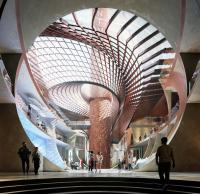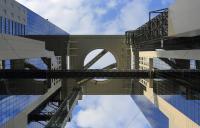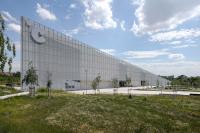Amager Incineration Plant
Copenhagen, Dänemark
The proposal seeks to create a destination, discussing the waste-to-energy story in an associative and physical manner so that the visitor will repeatedly engage with the place and the subject. This is a public gesture, experienced hands-on at close quarters and viewed from afar at the scale of the city … by being understood as part of the pulse that flows through the city. We can, by its design, intuitively understand that Amager Forbrænding is an important part of the city's circuit an "environmentally friendly" way of transforming the city's waste into energy. Amager Forbrænding, should in other words also be picture-making and storytelling.
The building is horizontally divided into two primary elements, a ‘heavyweight’ base and a ‘lightweight’ top. This delineation functionally and visually orders the building and forms the basis of the building’s narrative as an organism, a processor and a provider.
The building is clad with a skin of translucent inflated membrane cells (ETFE ‘pillows’) allowing UV filtered daylight to fill the interior. The cladding creates a soft-focus form of easy edges and vague density, featuring adjustable surface opacity and variable intensity of illuminated glow. These effects are technically achieved through manipulation of the ETFE pillows, which can be smoke filled, back-lit, and variably inflated to adjust the position and visibility of the pillow’s internal layer.
Visitors to the plant are taken on a linear journey through the entire length of the building which tracks the process of transition from waste to energy. The experience is as much about this journey as the destination but nonetheless culminates in a space which we promote as one of Copenhagen’s great spaces in waiting. The story of transformation is also one of creation, and the proposal suggests the expansion of the viewing room to house the Amagerforbrænding Winter Garden.








